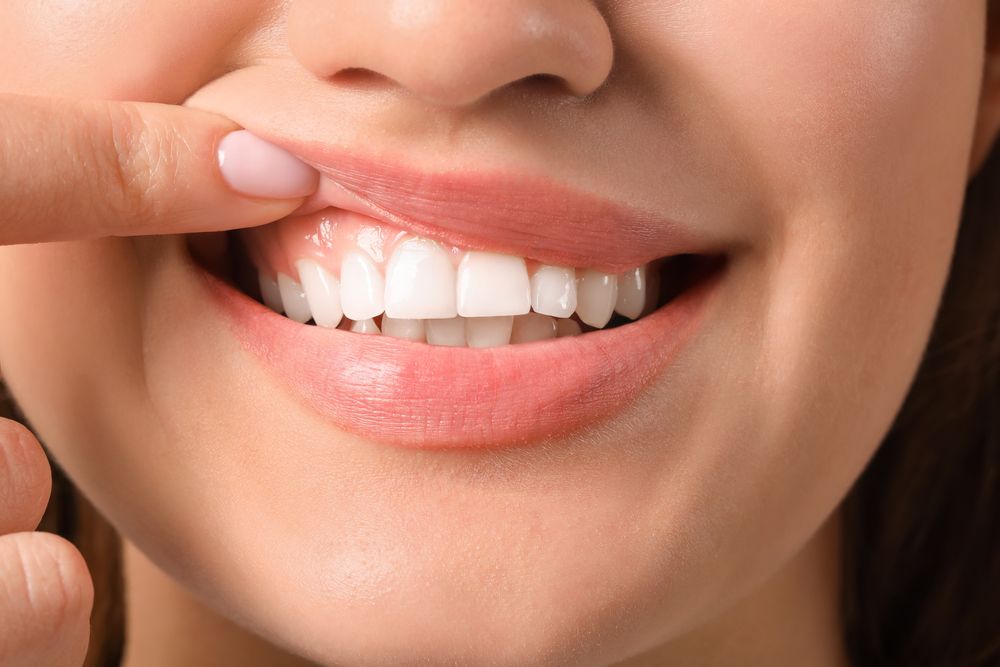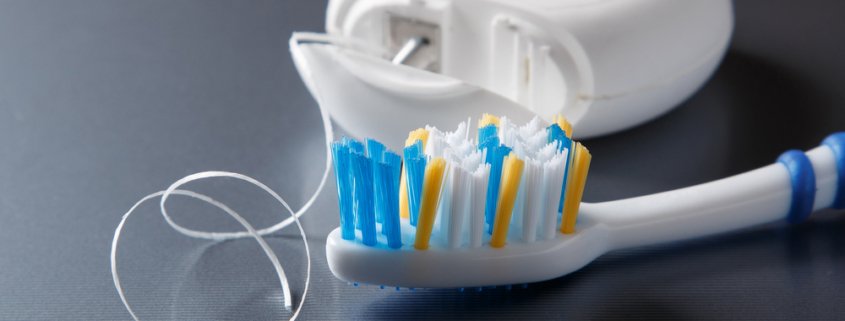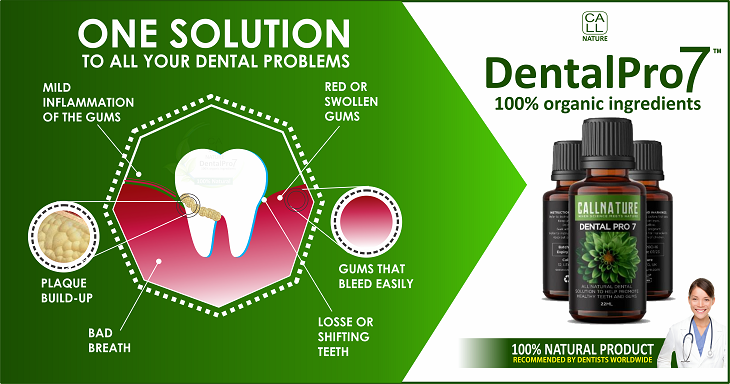Are you experiencing the subtle but concerning issue of receding gums? Don’t worry, we understand how important it is for you to maintain a healthy and beautiful smile. Taking care of your oral health is crucial in ensuring that your gums stay strong and intact. In this article, we will explore some effective home remedies that can help treat receding gums at home and promote gum health.
Maintaining good oral hygiene is the key to preventing and treating receding gums. By brushing and flossing correctly, using a soft-bristled toothbrush, and gently massaging your gums, you can strengthen them and promote their regeneration. Additionally, incorporating oil pulling, green tea rinses, turmeric paste, and vitamin C-rich foods into your daily routine can provide significant benefits for your gum health.

Remember, regular dental check-ups are essential in identifying any underlying issues early on. By following these evidence-based techniques at home, you can take control of your oral health and enjoy the confidence that comes with a vibrant smile. Let’s delve into these simple yet effective remedies to treat receding gums naturally from the comfort of your own home.
Maintaining Good Oral Hygiene
You can easily keep your gums healthy and prevent further recession by practicing good oral hygiene habits at home. Proper dental care is essential for preventing gum disease and maintaining strong, healthy gums. Start by brushing your teeth at least twice a day with a soft-bristled toothbrush. Be sure to clean along the gumline using gentle, circular motions. Flossing daily is also crucial as it removes plaque and debris from between the teeth and along the gumline where a toothbrush can’t reach. Additionally, incorporate an antibacterial mouthwash into your routine to help kill bacteria that may cause gum disease. Lastly, avoid tobacco use and maintain a balanced diet rich in fruits and vegetables to support overall oral health.

Brushing and Flossing Correctly
Properly brushing and flossing can make a significant difference in maintaining healthy gums. When it comes to brushing, it’s important to use the right technique. Start by holding your toothbrush at a 45-degree angle against your gums and gently brush back and forth in short strokes. Be sure to cover all surfaces of your teeth, including the front, back, and chewing surfaces. Don’t forget to brush your tongue as well to remove bacteria and freshen your breath.
In addition to brushing, flossing is crucial for gum health. Use about 18 inches of dental floss and wrap it around your middle fingers, leaving about an inch of floss between them. Gently glide the floss between each tooth using a sawing motion and curve it into a C shape around the base of each tooth. Make sure you go below the gumline as this is where plaque tends to accumulate.

By following these proper brushing and flossing techniques, you can help maintain healthy gums and prevent further recession. Remember, consistency is key!
Using a Soft-Bristled Toothbrush
Using a soft-bristled toothbrush will feel like a gentle massage for your gums, leaving them feeling refreshed and pampered. When treating receding gums at home, it is essential to use proper brushing techniques. Opting for a soft-bristled toothbrush is crucial because it helps protect your delicate gum tissue from further damage. The bristles are designed to be gentle yet effective in removing plaque and debris from your teeth and along the gumline. Unlike hard or medium bristles, which can be abrasive and cause irritation, a soft-bristled toothbrush ensures that you clean your teeth without causing harm to your gums. By using a soft-bristled toothbrush regularly, you can maintain good oral hygiene while promoting healthier gums and preventing further gum recession. Remember, taking care of your gums is just as important as caring for your teeth!

Gently Massaging Your Gums
Take a moment to gently massage your gums, providing them with a soothing and invigorating experience. Not only does this practice feel good, but it also has numerous benefits for your oral health. By massaging your gums, you can relieve gum sensitivity and improve blood circulation in the area. Here are some simple steps to follow:
- Start by washing your hands thoroughly.
- Use your index finger or thumb to gently rub your gums in circular motions.
- Apply light pressure, being careful not to cause any pain or discomfort.
- Continue massaging for about 2 minutes, focusing on different areas of your mouth.
Regularly massaging your gums can help reduce inflammation and promote healing. It also stimulates the production of saliva, which aids in rinsing away harmful bacteria. Incorporating this gentle technique into your daily routine will contribute to healthier gums and overall oral well-being.
Oil Pulling To Treat Receding Gums At Home
Immerse yourself in the ancient practice of oil pulling, swishing a tablespoon of coconut or sesame oil in your mouth for 10-15 minutes to detoxify and rejuvenate your oral cavity. Oil pulling is a natural remedy that has been used for centuries to promote oral health and reduce inflammation. It works by drawing out toxins and bacteria from your gums, leaving them cleaner and healthier.

To perform oil pulling, simply take a tablespoon of coconut or sesame oil and swish it around in your mouth, making sure to pull it through your teeth. Do this for 10-15 minutes every day before brushing your teeth. Spit out the oil into a trash can when you’re finished, as it can clog drains.
Here is a table summarizing the benefits of oil pulling:
| Benefits of Oil Pulling |
|---|
| Reduces inflammation |
| Detoxifies oral cavity |
| Promotes gum health |
By incorporating this simple practice into your daily routine, you can experience the benefits of reducing inflammation and improving gum health with this natural remedy.
Saltwater Rinse
Refresh your oral cavity and invigorate your senses by swishing a solution of warm saltwater in your mouth, transporting yourself to the soothing embrace of an ocean breeze. Saltwater rinses have been used for centuries to promote oral health and can be a beneficial addition to your daily routine if you are experiencing receding gums. Here are five reasons why saltwater rinses are an effective treatment option:

- Reduces inflammation: Saltwater has natural anti-inflammatory properties that can help reduce swelling and irritation in the gums.
- Promotes healing: The saline solution helps create an environment that supports the healing process, allowing damaged gum tissues to repair themselves.
- Removes bacteria: Swishing with saltwater helps eliminate harmful bacteria from the mouth, reducing the risk of infections that can contribute to gum recession.
- Improves circulation: Saltwater stimulates blood flow in the gums, which aids in providing essential nutrients and oxygen to promote healthier tissue growth.
- Alleviates discomfort: Saltwater rinses can provide temporary relief from gum sensitivity and pain associated with receding gums.
Incorporating a saltwater rinse into your oral hygiene routine along with regular brushing, flossing, and dental check-ups can help address receding gums causes and improve overall gum health.
Aloe Vera Gel
Experience the soothing relief of aloe vera gel as it nourishes and revitalizes your oral cavity, leaving you with a refreshing sensation. Aloe vera has been used for centuries due to its numerous health benefits, including its ability to promote healing and reduce inflammation. When it comes to treating receding gums at home, aloe vera gel can be an effective remedy. It contains vitamins, minerals, and antioxidants that help strengthen gum tissues and promote overall oral health.

To give you a better understanding of the benefits of aloe vera gel for receding gums, here is a table summarizing its key properties:
| Property | Benefit |
|---|---|
| Anti-inflammatory | Reduces gum inflammation and swelling |
| Antimicrobial | Fights against bacteria causing gum disease |
| Moisturizing | Hydrates dry gums |
| Healing | Promotes tissue repair |
Incorporating aloe vera gel into your oral care routine can provide relief from receding gums while promoting healthy gums. Simply apply the gel directly onto the affected area or use it as an ingredient in homemade mouthwash or toothpaste for maximum benefits. Remember to consult your dentist if symptoms persist or worsen.
Green Tea Rinse
Indulge in the soothing sensation of a green tea rinse, harnessing the power of antioxidants to promote oral health and rejuvenate your mouth. Green tea has long been recognized for its numerous health benefits, and it can also help with receding gums. The antioxidants found in green tea can combat inflammation and reduce gum bleeding, which are common symptoms of gum recession. Additionally, green tea contains catechins that have antimicrobial properties, helping to fight off harmful bacteria that contribute to gum disease. Regularly rinsing with green tea can not only improve the overall health of your gums but also freshen your breath. So why not incorporate this simple and natural remedy into your daily oral care routine? By doing so, you’ll be taking a step towards healthier gums and a brighter smile!

Turmeric Paste
Enhance your oral health with the powerful benefits of turmeric paste, a natural remedy that can promote gum health and brighten your smile. Turmeric has been used for centuries in traditional medicine due to its anti-inflammatory and antimicrobial properties. When applied as a paste, turmeric can help reduce inflammation in the gums and prevent bacterial growth that contributes to gum disease.

To make a turmeric paste at home, simply mix equal parts turmeric powder and water to create a thick consistency. You can also add a pinch of salt or coconut oil for added antibacterial properties. Apply the paste directly onto your gums using a soft toothbrush or your fingers, gently massaging it into the affected areas.
Incorporating turmeric into your oral care routine is not only beneficial for gum health but also provides other overall health benefits. Additionally, there are various turmeric recipes available online that you can try to incorporate this spice into your diet for maximum benefits. Remember to consult with your dentist before trying any new remedies or making significant changes to your oral care routine.
Vitamin C-rich Foods
Boost your oral health by incorporating vitamin C-rich foods into your diet and watch as your smile shines brighter than ever. Vitamin C is essential for maintaining healthy gums and preventing gum disease. Here are three delicious options to consider:
- Oranges: These citrus fruits are packed with vitamin C, which helps boost collagen production in the gums. Collagen is a protein that supports gum tissue health and prevents it from receding.
- Bell peppers: These colorful vegetables are not only crunchy and tasty but also rich in vitamin C. Adding bell peppers to your meals can help strengthen your gums and promote overall oral health.
- Strawberries: Not only do strawberries provide a burst of sweetness, but they also contain high levels of vitamin C. Snacking on these juicy berries can help keep your gums healthy by boosting collagen production.
Incorporating these vitamin C-rich foods into your daily diet can go a long way in maintaining strong, healthy gums and preventing gum disease.

Regular Dental Check-ups
Don’t neglect your oral health – make sure to schedule regular dental check-ups for a confident and radiant smile. Regular dental visits are crucial in preventing gum disease and maintaining optimal oral hygiene. During these visits, your dentist will thoroughly examine your gums, teeth, and mouth to detect any signs of gum recession or other oral health issues. They may also perform professional cleanings to remove plaque and tartar buildup that can contribute to gum disease.
In addition to the visual examination, your dentist may measure the depth of the pockets between your gums and teeth using a periodontal probe. This helps assess the health of your gums and identifies any potential areas of concern. By detecting early signs of gum disease, such as redness, swelling, or bleeding gums, your dentist can intervene promptly and recommend appropriate treatment options.
Remember, prevention is key! Regular dental check-ups play an essential role in maintaining healthy gums and preventing further recession. Don’t hesitate to book an appointment with your dentist today for a comprehensive evaluation of your oral health.
Frequently Asked Questions
Can receding gums be reversed without professional intervention?
Yes, receding gums can be reversed without professional intervention. There are natural treatments for reversing receding gums, such as proper oral hygiene, using a soft toothbrush, and applying essential oils. However, consult a dentist for severe cases.
Are there any home remedies specifically for receding gums due to gum disease?
To treat receding gums at home, you can try natural remedies like using essential oils. Essential oils like tea tree and clove have antimicrobial properties that can help reduce gum disease and promote gum health.
Can receding gums be a sign of a more serious dental condition?
Receding gums can be a sign of gum disease, a serious dental condition. It is important to address the underlying causes and seek professional treatment options for receding gums to prevent further damage and maintain oral health.
How long does it take for home remedies to show improvement in receding gums?
Wondering how long it takes to see improvement with natural remedies for receding gums? The effectiveness of home treatments varies, but typically you should start noticing results within a few weeks.
Are there any precautions or side effects to consider when using home remedies for receding gums?
To ensure your safety, it’s important to consider precautions and potential side effects when using home remedies for receding gums. Consult with a dentist, follow instructions carefully, and be aware of any allergic reactions or adverse effects that may occur.
Final Thought
Taking care of your gums at home is crucial for maintaining good oral health. By following proper oral hygiene practices such as brushing and flossing correctly with a soft-bristled toothbrush, gently massaging your gums, and incorporating techniques like oil pulling and green tea rinse, you can help treat receding gums at home. Additionally, including vitamin C-rich foods in your diet and scheduling regular dental check-ups are essential steps in preventing further gum recession. While there may be various theories on treating receding gums at home, it is important to investigate their truth through evidence-based research to ensure their effectiveness.
Further Readings
https://pubmed.ncbi.nlm.nih.gov/8409019/
https://hospitals.aku.edu/pakistan/diseases-and-conditions/Pages/gum-disease.aspx
